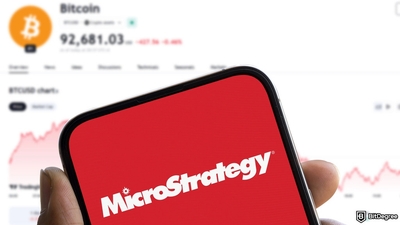Free Airdrop Season 7 is LIVE! Answer fun questions or do simple tasks to earn rewards from the $30K BitDegree prize pool. Participate Now ! 🔥
US Attorney General Faces Lawsuit Over Crypto Crowdfunding Software, Pharos
Key Takeaways
- Michael Lewellen’s lawsuit challenges the DOJ’s interpretation of money-transmitting laws for non-custodial crypto software;
- The case highlights concerns about stifling blockchain innovation and targeting developers who don't control users’ funds;
- Lewellen argues Pharos, his planned crowdfunding software, doesn’t meet the legal definition of money transmission.
Michael Lewellen, a crypto developer and member of Coin Center, has filed a lawsuit against US Attorney General Merrick Garland.
The suit, submitted in Texas federal court on January 16, asks to confirm that Lewellen's planned software, Pharos, is legal and to prevent future prosecution against him.
Pharos is a non-custodial cryptocurrency software designed to support crowdfunding campaigns without managing users’ funds.

Did you know?
Subscribe - We publish new crypto explainer videos every week!
Is Cryptocurrency a Good Investment? (5 PROS & CONS!)


In a January 16 post on X, Lewellen warned that the Department of Justice's (DOJ) approach could stifle progress in blockchain technology, saying, “This isn’t just about Pharos; it’s about the future of cryptocurrency innovation in America”.
The issue stems from how the DOJ applies money-transmitting laws. Lewellen argues that the DOJ has stretched these laws beyond their intended scope, which violates constitutional protections for free speech and due process.
The filing references past cases where the government prosecuted crypto developers, including Roman Storm of Tornado Cash and Keonne Rodriguez of Samourai Wallet. Both developers were charged for creating cryptocurrency mixing tools under claims of operating unlicensed money-transmitting businesses.
Lewellen’s legal team contends that these prosecutions unfairly target software creators who neither control nor handle users' funds.
Lewellen emphasizes that Pharos operates differently. According to the complaint, the software does not grant its creator control over any cryptocurrency that users send through it.
The argument is that money transmission requires control over funds, which does not apply to Pharos or similar non-custodial software.
Coin Center, an advocacy group for cryptocurrency policies, is backing Lewellen in this legal battle. They view it as a critical step in protecting innovation within the industry.
Meanwhile, two tech organizations recently took legal action against the Consumer Financial Protection Bureau (CFPB). What does the lawsuit say? Read the full story.























